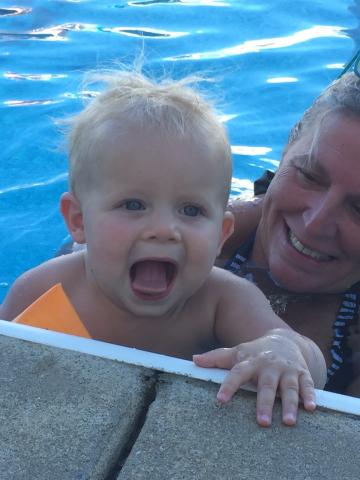
That Was Then
In the early 80s, my family set off on an annual trip from southern Ohio to Wisconsin’s North Woods. My youngest nephews, toddler twins, spent 750 miles in a playpen in the back of their dad’s minivan, holding on for dear life and joyfully yelling “whoa” on the biggest curves.
Child restraint laws didn’t go into effect until a few years later. We didn’t know what we didn’t know.
Recommendations concerning safe sleep, mealtimes, limit-setting—and, of course, car seats!—have all changed in the decades since today’s parents were kids themselves. If you’re one of the millions of U.S. parents who relies on your own parents to help with child care, you may wonder how to reconcile your own parenting preferences with your parents’ wishes. And you’re not alone.
This is Now
Earlier this year, ZERO TO THREE set out to find out more. We hosted three focus groups for grandparents who look after grandchildren under 6. Although we found that conflict between generations was a normal part of the equation, grandparents were for the most part thrilled to have more time with their grandkids. Here are the highlights:
Conflict. While some grandparents reported having an effective caregiving partnership with their adult children, others found “sharing the care” to be a bit challenging. Most challenges arose out of a mismatch in expectations around caregiving roles and responsibilities. At times, grandparents and their adult children disagreed over rules about child behavior, especially around discipline and nutrition, and it wasn’t always easy to address these differences with their adult children (and their partners).
Joy. Grandparents described caring for their grandchildren as a happy “do-over” that gave meaning to their lives. They felt more relaxed, confident, and patient than they’d been with their own kids.
Commitment. Most focus group participants stated definitively that their decision to help with caregiving was motivated by love – for their adult children as well as for their grandchildren.
The future. Grandparents described having high hopes for their grandkids’ futures and valued the part they were able to play in helping their grandchildren achieve their dreams.
Join the Conversation
Want to know more? ZERO TO THREE’s grandparenting research is just the beginning of a larger conversation, one which includes parents, grandparents, and the organizations that serve both. Here’s how to join us:
Download free handouts with the latest info on what’s changed and what’s stayed the same since today’s grandparents were parents themselves. These include practical tips on setting limits with love, keeping the peace at mealtimes, creating a safe space to sleep, and making the most of time with grandchildren.
Share stories and check in with other parents and grandparents on Facebook and Twitter using the #GrandparentsCare hashtag. And join us for a free webinar about our grandparenting project on Thursday, Sept. 14, from 2 p.m. to 2:45 p.m. ET.
----
You can also learn more about the report and ask us any questions we will be chatting with @MomsRising on the #EarlyEdChat on 9/28 from 2-3. We will be discussing the report and sharing our experience - I hope to see you there!



The views and opinions expressed in this post are those of the author(s) and do not necessarily reflect those of MomsRising.org.
MomsRising.org strongly encourages our readers to post comments in response to blog posts. We value diversity of opinions and perspectives. Our goals for this space are to be educational, thought-provoking, and respectful. So we actively moderate comments and we reserve the right to edit or remove comments that undermine these goals. Thanks!